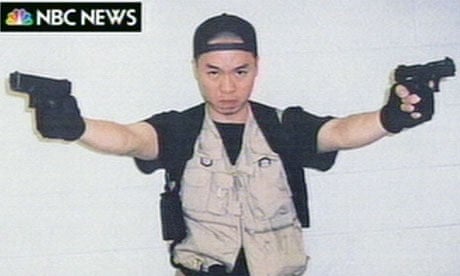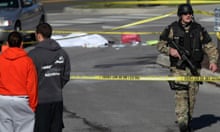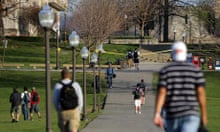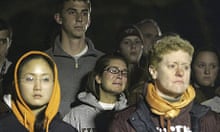Virginia Tech will have to pay the maximum $55,000 (£34,000) fine for waiting too long to notify students during the 2007 shooting rampage, the US department of education has announced.
Officials told the university the sanction should have been greater for the school's slow response to the deadliest mass shooting in modern
American history, when student Cho Seung-hui shot and killed 32 students and members of faculty, then himself.
The $55,000 fine was the most the department could levy for the school's two violations of the federal Clery Act, which requires timely reporting of crimes on campus.
"While Virginia Tech's violations warrant a fine far in excess of what is currently permissible under the statute, the Department's fine authority is limited," wrote Mary Gust, director of a departmental panel that dictated what punishment the school would receive.
However, Virginia Tech avoided the potentially devastating punishment of losing some or all of its $98m in federal student aid. University officials have always maintained their innocence and said they would appeal against the fine, even though it's a relatively small sum for a school of more than 30,000 full-time students and an annual budget of $1.1bn. The amount would cover tuition and fees for one Virginia undergraduate student for four years, or two years for an out-of-state undergraduate.
"We believe that Virginia Tech administrators acted appropriately in their response to the tragic events of April 16, 2007, based on the best information then available to them at the time," spokesman Larry Hincker said in a statement.
The Clery Act requires colleges and universities that receive federal student financial aid to report crimes and security policies and provide warning of campus threats.
The education department issued its final report in December, finding that Virginia Tech failed to issue a timely warning to the Blacksburg campus after Cho shot and killed two students in a dormitory early that morning. The university sent out an email to the campus more than two hours later, about the time Cho was chaining shut the doors to a classroom building where he killed 30 more students and faculty, then himself.
That email was too vague, the department said, because it referred only to a "shooting incident" but did not mention anyone had died. By the time a second, more explicit warning was sent, Cho was near the end of his shooting spree.
"Had an appropriate timely warning been sent earlier to the campus community, more individuals could have acted on the information and made decisions about their own safety," the department said.
A state commission that investigated the shootings also found that the university erred by failing to notify the campus sooner. The state reached an $11m settlement with many of the victims' families. Two families have sued and are seeking $10m in damages from university officials. That case is set for trial this autumn.





